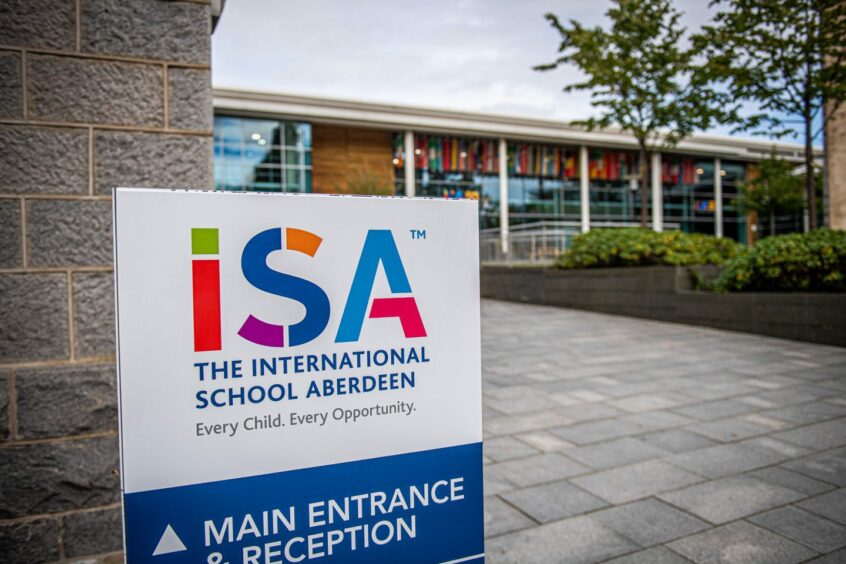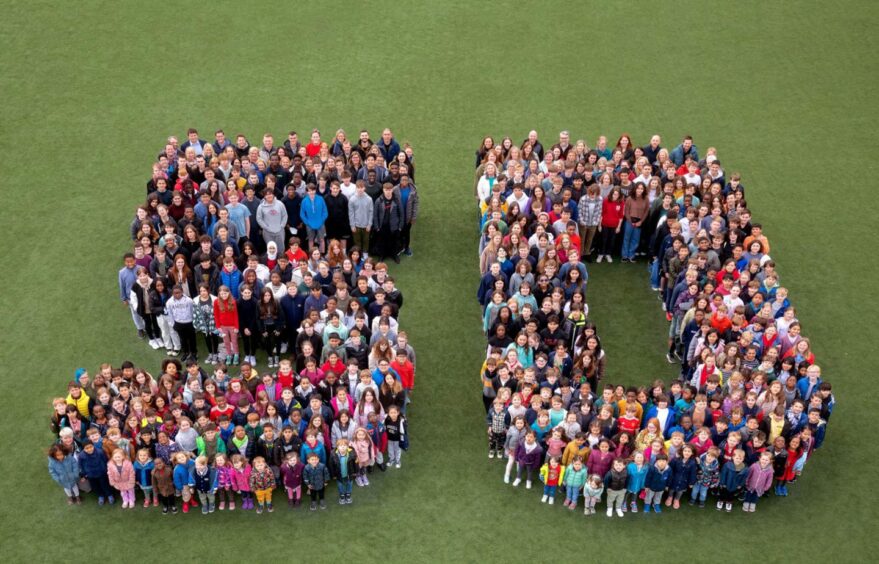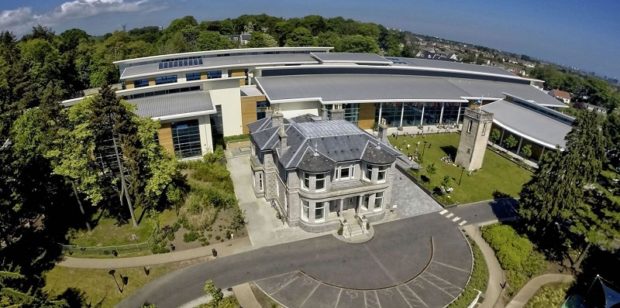
In August 1972, the first group of 36 students took their seats behind their desks at International School Aberdeen (ISA).
At the time of the school’s opening 50 years ago on the site of a former hospital in Cults, it was known as The American School and opened with a faculty of eight teachers.
Since then, there’s no denying life has changed in some seriously significant ways for both Aberdeen and the school itself.
The dawn of the city’s oil boom in the early-1970s saw many companies establishing their headquarters in Aberdeen to oversee exploration and drilling on offshore platforms.
This shift helped pave the way for a new kind of learning to meet the rising demand of expat families relocating to the city. As Scotland’s first international school, ISA has continued to position itself at the forefront of shaping education to meet the changing needs of the global energy industry.
A young school leaver in the 1970s started their careers in a very different place to the one they will retire from. While the architecture is the same, and the glorious landscape beyond remains untouched, not too much else has stayed the same in Aberdeen.
Other changes in the city are less unique and are seen more widespread across the world. For example, the rise in digital technology. What was the stuff of science fiction just 30 years ago, is everyday life now.
Preparing the workforce of the future
While the energy sector is well equipped to deal with transition, education plays a vital role in readying the future workforce to meet changes in technology and shifting global energy targets.
Change is one of the bedrocks that defines us and sectors including oil, gas, marine, and transportation have changed beyond recognition in a generation.
This new world will see our children with job opportunities that we don’t even know exist yet or working in traditional jobs that are performed very differently.
And this is why ISA focuses on cultivating leaders – the makers of change.
Over the last 20 years, there has been an explosion in international education; from fewer than a million pupils worldwide to more than six million today.
Interestingly, 80% of these pupils are not the expats the schools were initially created to serve – but locals.
ISA has experienced the same change in demographic as international schools worldwide. Ten years ago, it had few locals, now almost half of its student population of 500 are Aberdonians.
Taking this into account, the most pressing question is: “What education will best prepare our children for the future?”
ISA provides an inclusive education from age 3-18 and is committed to excellence for each and every child.
Head of School Nick Little explains, “ISA educates 50 nationalities in an environment that encourages not just mutual tolerance, but active learning from peers. We encourage collaborative skills via lessons that routinely encourage discussion, debate, and engagement with a wider world.
“Our students are curious about the world around them and they ask questions to connect new experiences to existing knowledge.”
Creating the new possible
The school changed its name to International School Aberdeen in 1996 to reflect the International Baccalaureate (IB) Diploma Programme that was implemented the same year. The IB Diploma allows students to go one step further than core academic skills.
Uniquely for a school-based system, pupils are explicitly taught how to think about thinking. It is what a fast-paced changing world needs – problem solvers that take the initiative to find new ways of working.
In recent years, for example, ISA has successfully introduced computational thinking as a core skill alongside literacy and numeracy. The school aims for every student to leave school able to program a computer, construct a database and perform data analysis.
This growth mindset is exactly what an international education promotes.
It’s no wonder that UK universities ranked the IB Diploma at 94% for encouraging independent inquiry, against less than 50% for A-levels and Scottish highers.
In August 2010, ISA moved into its new, purpose-built campus at Pitfodels House, where it remains to this day.
The campus includes a 25m swimming pool, climbing wall, five science labs, three performing arts studios, a 300-seat theatre, and a state-of-the-art sports complex.
Yet what has seen it through the last five decades of rapid change is a strong sense of values and an eye on the future. “Since the first day of school 50 years ago, we have continued to adapt and move with the times,” continued Nick.
“Yet one thing that endures is our quality of teaching and our commitment to providing exceptional care for every child. Student wellbeing sits at the heart of everything ISA stands for.”
The ‘pull factor’ of Aberdeen
One of ISA’s longest serving teachers is Morio Kasijawara, recently appointed Elementary School Principal. Morio first joined ISA in 1998 and, in between various overseas postings, has always returned to Aberdeen, to where he now considers “home”.
Morio is just one of many expats who now see the north-east as their adopted homeland.
“Aberdeen is a unique city, and a very special place. We have always thought what a fantastic place this is to raise a family and we are delighted to call ourselves ‘Aberdonians’,” said Morio.
Nick adds, “ISA is such a special place. We are so much more than a school – we are a community. I am grateful for my role in helping to lead the school and shape our students into confident learners and active global citizens.
“ISA embodies the essence of an international school as a gateway to the wider world, yet as a school community, we are immensely proud of our homegrown roots in the Granite City which sit alongside our vibrant international identity.
“As we honour the last 50 years in Aberdeen, we also look to the future as we continue to thrive while maintaining a global approach to education and embracing contemporary teaching and learning methods.”
Recommended for you

 © Supplied by ISA
© Supplied by ISA